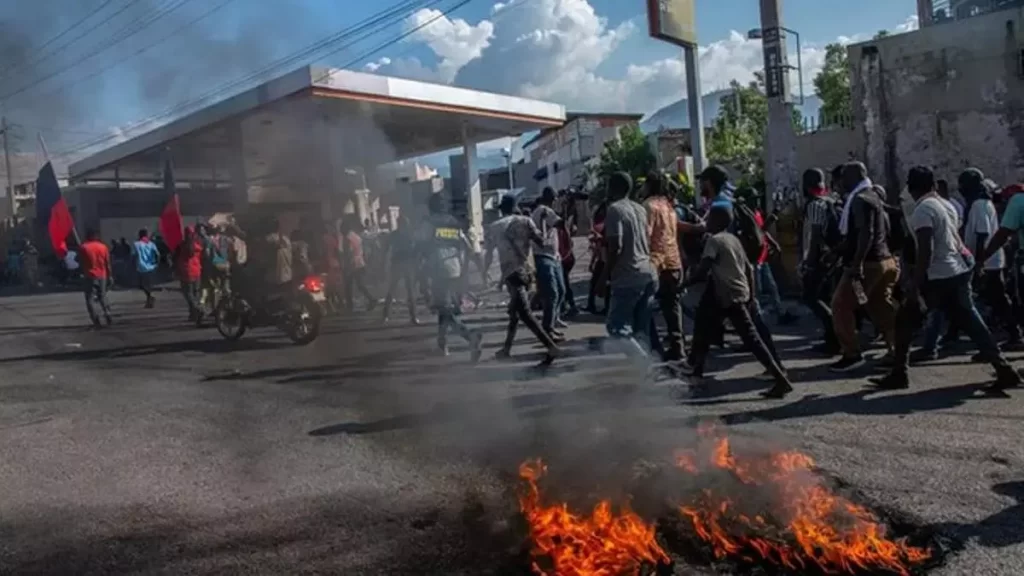The current situation in the small nation has revealed the limited effectiveness of the Community of Latin American and Caribbean States and other regional alliances.

![]() 14ymedio, Yoani Sánchez, Havana, 31 March 2024 — Acronyms, meetings and official photos. International organizations seem more interested in demonstrating that they are operating through events and receptions than with actions or results. In Latin America it is a rare month in which there is not a summit, meeting or alliance that grabs the headlines and generates a new declaration signed by leaders and foreign ministers. However, where the effectiveness of these integration mechanisms is really measured is in reality, a level in which most lack tangible fruits.
14ymedio, Yoani Sánchez, Havana, 31 March 2024 — Acronyms, meetings and official photos. International organizations seem more interested in demonstrating that they are operating through events and receptions than with actions or results. In Latin America it is a rare month in which there is not a summit, meeting or alliance that grabs the headlines and generates a new declaration signed by leaders and foreign ministers. However, where the effectiveness of these integration mechanisms is really measured is in reality, a level in which most lack tangible fruits.
The current situation in Haiti has revealed the limited effectiveness of the Community of Latin American and Caribbean States (Celac) and other regional alliances. Instead of accompanying and supporting the Haitian people in the difficult moment they are experiencing, the governments of this continent have chosen to look the other way or to dedicate themselves to distributing historical blame without managing to provide quick and practical help aimed at the population of a country ravaged by violence, the economic crisis and the collapse of political institutions.
Instead of accompanying and supporting the Haitian people in the difficult moment they are experiencing, the governments of this continent have chosen to look the other way
Celac and Latin American executives have failed Haitians because they have not even managed to protect them as refugees. On the dangerous route that crosses the Darién jungle and enters Central America and then crosses Mexican territory until reaching the southern border of the United States, nationals of the Caribbean country are among the migrants in the most vulnerable situation. Without speaking a word of Spanish, in many cases, lacking the resources to pay coyotes, and goaded by racism, they have become invisible beings that local administrations do not want to see, mention or support.
The lack of programs with residence facilities, access to work and coverage of basic services in many of the countries that make up the migratory journey of thousands of Haitians annually is striking. With more than 12 million inhabitants, the small island depends more and more on its diaspora and supporting these human beings in transit is also a way to save families who have been left waiting for their relatives to manage the trek, send them remittances and support them from the outside. The United Nations Refugee Agency (UNHCR) issued a series of recommendations for neighboring countries to guarantee these Haitians refuge and protection; but, as often happens, the exhortation has fallen on deaf ears.
In addition to specific facilities for these migrants, a joint response to the Haitian drama has been lacking in Latin America
In addition to specific facilities for these migrants, a joint response to the Haitian drama has been lacking in Latin America. The houses of Government are more focused on arguing among themselves over their ideological positions, creating a diplomatic fire based on the publications of a leader on the social network X, or making accusations against other governments, than in sitting down to agree on a plan of action.
During crises and humanitarian alerts, regional organizations are tested and those who represent us in this hemisphere have demonstrated their inability. Haitians can no longer wait for summits and photos of presidents smiling in front of the cameras. An aid program aimed at its injured population is urgently needed and must be as a whole as “the silver in the depth of the Andes.”*
*Translator’s note: The quote is from José Martí’s 1891 essay “Nuestra America”: “The hour to muster and march in unison is upon us and our ranks must be as compact as the veins of silver in the depths of the Andes.”
